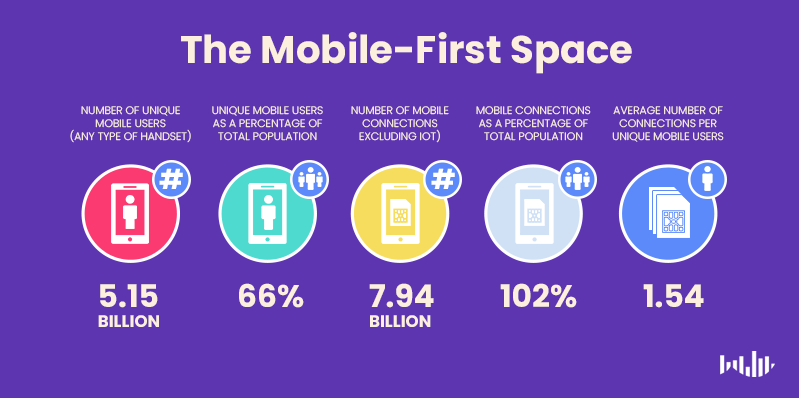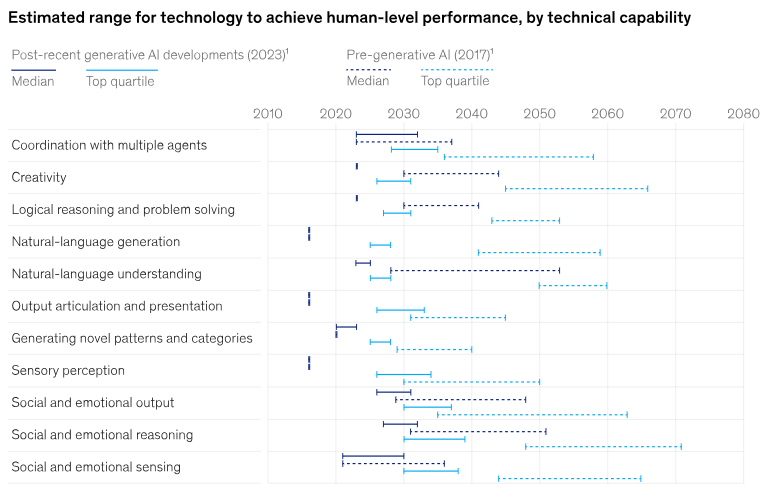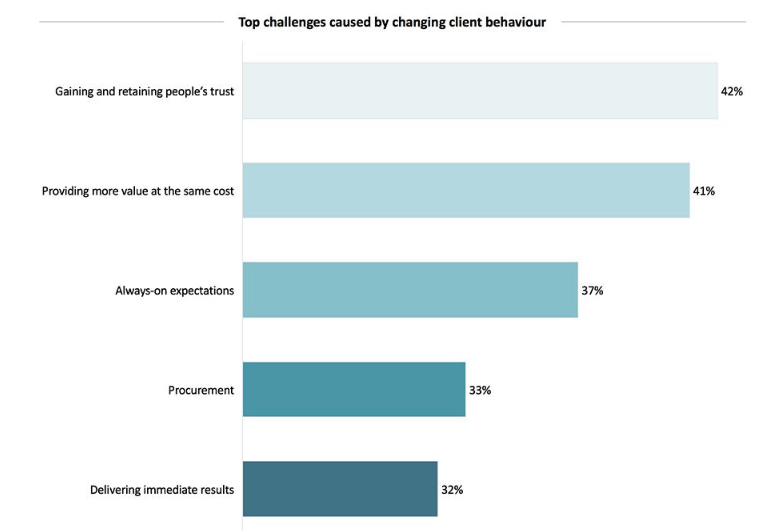Highlights:
- Rapid research methodologies are transforming the consulting landscape, offering quicker, more affordable insights.
- Some of the major benefits include faster problem-solving, informed strategy development, and enhanced client satisfaction.
- Consulting businesses with client-facing operations that require quicker turnaround can leverage rapid research to their benefit.
You need some form of data to operate any business. What happens when your business is heavily reliant on providing data-driven insights to your clients? For consulting companies, leveraging research and intelligence is next to indispensable, in more ways than one might think. Consulting businesses often deal with advising clients on business models, optimizing costs, anticipating risk, driving innovation, and more. Exhaustive amounts of research and intelligence goes into informing these strategies to their clients. However, there are also times when these firms may require information that is not core but supplementary to these processes. These could be smaller ad-hoc research requirements or building an executive profile for a business. Now, considering the time-consuming and expensive nature of conventional research methods, the means may not always justify the end. Enter rapid research methods.
Rapid research is emerging as a game-changer in the consulting industry. These methods leverage technology, innovative data collection techniques, and collective intelligence to generate insights more quickly and affordably.
As a standard rule, rapid research methods typically take less than a day to conduct. This method typically involves a combination of quantitative and qualitative data collection and analysis techniques. Some of the key benefits of rapid research methods include:
- Speed: Rapid research methods can generate insights in a matter of days. This is barely anything compared to months or even years that traditional research studies take.
- Cost-effectiveness: Rapid research methods are typically more cost-effective than traditional research methods, as they require smaller teams and fewer resources.
- Flexibility: Rapid research methods can be customized to meet the specific needs of each project. This makes them ideal for addressing complex and nuanced challenges.
Key trends in rapid research methods
The following are some of the key trends shaping the evolution of Rapid research methods:
Technological integration
Technology is playing an increasingly important role in rapid research methodologies, with a special emphasis on research that requires quicker turnarounds while maintaining quality. Cutting-edge tools and software are enabling consultants to collect and analyze data more efficiently and effectively.
A LinkedIn forecast hypothesized that 2023 will witness a rise in mobile-first intelligent survey methods to reach deeper customer insights. This could be accredited to the fact that more than 60% of the world’s population uses mobile devices to access the internet. Mobile-first markets accrue an even higher percentage of mobile internet traffic . Therefore, mobile-first technology will play a monumental role in gathering more customer feedback from more participants.

Agile Data Analysis
Rapid research methods rely on the ability to collect and analyze data quickly and efficiently in order to generate insights. Data analysis tools and techniques are becoming increasingly sophisticated and accessible. Developments in real-time and automated data analysis tools, along with predictive data analytics models, allows researchers to identify trends and developments, faster and more accurately. In all, this approach channels a way to identify and respond to trends and changes more quickly.
For example, consultants can use AI-powered dashboards to track key metrics and identify anomalies. They can also use natural language processing tools to extract insights from unstructured data, such as customer reviews and social media posts.
Crowdsourcing and Citizen Science
Crowdsourcing involves the use of a large group of people, typically over the internet, to complete tasks that would be difficult or time-consuming for a small team to do alone. Citizen science involves the participation of non-professional scientists in scientific research. Thus, crowdsourcing and citizen science allows researchers to tap into the collective intelligence of the public to collect and analyze large amounts of data quickly and efficiently.
For example, consultants can use crowdsourcing platforms to recruit participants for surveys, interviews, and focus groups. They can also use citizen science platforms to collect data from a wide range of sources, such as weather stations and environmental sensors.
AI-Powered Insights
According to a McKinsey survey, generative AI features stand to add up to $4.4 trillion to the global economy annually. AI-powered tools can help in automating research, speeding up tasks such as data collection, cleaning, and analysis. Additionally, technologies like NLPs can be used to extract insights from unstructured data, such as text and images. This can be a valuable tool for rapid research, as it allows researchers to access and analyze data that would be difficult or impossible to analyze using traditional methods. This can free up consultants to focus on more strategic activities.

How can consulting companies benefit from rapid research methods
Changing client expectations, dealing with competition, and maintaining profitability are some of the most pressing challenges that consultants face today. Moreover, consulting businesses are usually hard pressed on time in end client delivery. Rapid research methods offer a comparative advantage to navigating these without the constraints of exorbitant turnaround times, resources and cost. Outsourcing these task can help them focus on their core strategy, i.e. client work Here are some of the major benefits consulting companies can derive from rapid research methods.

Agile problem solving
Agile problem-solving through rapid research allows consulting firms to embrace iterative approaches. Rather than relying on traditional, linear problem-solving methods, consultants can continuously refine their understanding of issues, test potential solutions, and adapt strategies in real-time. This iterative process not only enhances responsiveness but also promotes a culture of continuous improvement within the consulting team.
Informed strategy development
Beyond simply acquiring data, informed strategy development involves synthesizing complex information into actionable insights. Consulting firms can leverage advanced analytics and visualization tools to distill large datasets into meaningful patterns and trends. This nuanced approach ensures that the strategies formulated are not only based on data but also convey a deep understanding of the implications and nuances within the industry landscape.
Efficient resource allocation
Efficient resource allocation requires knowing where to invest in order to drive maximum impact. Rapid research methods can help consulting companies employ predictive modeling and scenario planning to simulate the potential outcomes of different resource allocation strategies. By understanding the potential risks and rewards associated with each option, consultants can guide clients toward resource allocation strategies that align with their specific goals and risk tolerance.
Adaptation to changing environments
Rapid research enables consulting firms to not only adapt to change but also anticipate it. By leveraging early warning systems and trend analysis, consultants can proactively identify emerging shifts in the business environment. This foresight allows for strategic planning that positions clients to capitalize on opportunities or navigate challenges before they become widespread. The ability to anticipate change is a distinctive advantage in industries characterized by volatility and uncertainty.
Client satisfaction
For most consulting clients, quick results may often be a standard ask. However, creating a collaborative and transparent process is just as important. Consulting firms can engage clients in the rapid research journey, involving them in decision-making and solution exploration. This collaborative approach not only enhances the quality of insights but also fosters a sense of ownership and partnership, leading to higher client satisfaction and loyalty. Communication is a critical component. This ensures clients are informed about the research process, findings, and recommended actions in a clear and accessible manner.
Rapid research on the horizon: Challenges and future trends
While rapid research methods can be extremely beneficial to leaner, more agile studies, there are a few potential challenges associated with it. One major challenge is the quality of the data collected. It is important to carefully select data sources and implement quality control measures. Additionally, integrating rapid research methods into existing consulting workflows must be handled with tact. It is important to train consultants on new tools and techniques, and to develop processes for sharing insights across teams.
Therefore, it can be understood that while research is the cornerstone of the consulting industry, rapid research is the secret ingredient to addressing their clients’ needs more quickly and efficiently. As technology continues to evolve, we can expect to see even more innovative methods emerge. By automating tasks, identifying patterns and trends, and generating personalized recommendations, AI- driven rapid research will help consultants provide more value to their clients, all in tighter timelines.
At Netscribes, we believe in delivering the best of the best to our clients. Through no-bars access to some of the world’s more premium data-sets, we have helped leading consulting companies gain effective intelligence tailored to their needs.
To learn more about our Consulting and Advisory solutions including rapid research methods and more, contact us today.






